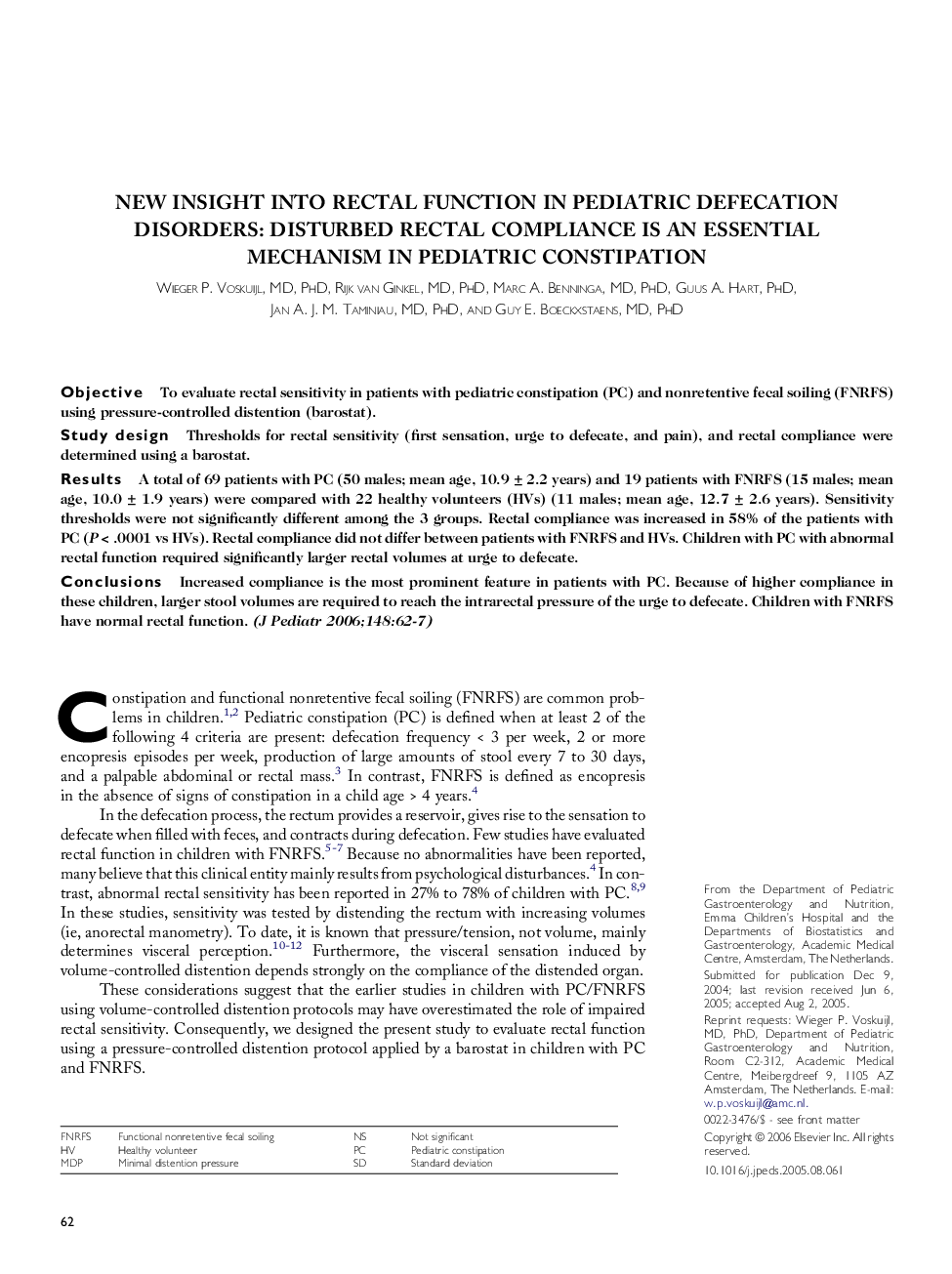| Article ID | Journal | Published Year | Pages | File Type |
|---|---|---|---|---|
| 4168966 | The Journal of Pediatrics | 2006 | 6 Pages |
ObjectiveTo evaluate rectal sensitivity in patients with pediatric constipation (PC) and nonretentive fecal soiling (FNRFS) using pressure-controlled distention (barostat).Study designThresholds for rectal sensitivity (first sensation, urge to defecate, and pain), and rectal compliance were determined using a barostat.ResultsA total of 69 patients with PC (50 males; mean age, 10.9 ± 2.2 years) and 19 patients with FNRFS (15 males; mean age, 10.0 ± 1.9 years) were compared with 22 healthy volunteers (HVs) (11 males; mean age, 12.7 ± 2.6 years). Sensitivity thresholds were not significantly different among the 3 groups. Rectal compliance was increased in 58% of the patients with PC (P < .0001 vs HVs). Rectal compliance did not differ between patients with FNRFS and HVs. Children with PC with abnormal rectal function required significantly larger rectal volumes at urge to defecate.ConclusionsIncreased compliance is the most prominent feature in patients with PC. Because of higher compliance in these children, larger stool volumes are required to reach the intrarectal pressure of the urge to defecate. Children with FNRFS have normal rectal function.
